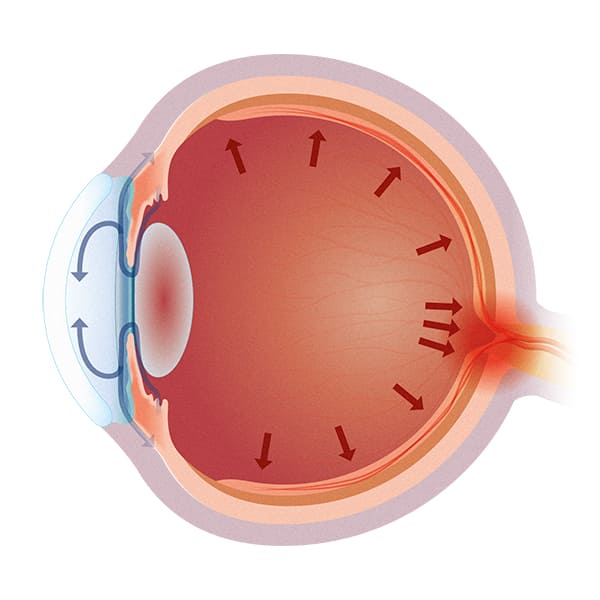Diagnosis
The diagnosis of glaucoma is made by a medical specialist, the ophthalmologist, following an examination and after various tests have been carried out to check the pressure inside the eye, the appearance of the optic nerve and the thickness of the cornea.
As glaucoma is a progressive disease, it is essential to diagnose it as early as possible to prevent permanent damage to vision. For this reason, it is advisable, especially in the presence of risk factors, to have regular eye examinations and any screening tests requested by the ophthalmologist.
Treatment
The progression of glaucoma can be slowed down with intraocular pressure-lowering therapy, which must be followed throughout life.
In milder cases of glaucoma, the specialist may prescribe hypotonic eye drops, which promote the outflow of aqueous humour, thus decreasing the pressure inside the eye.
In acute or more severe cases of glaucoma, however, it may be necessary to take oral or intravenous medication, undergo laser treatment or surgery to help draining of excessive aqueous humour and to restore normal intraocular pressure.

